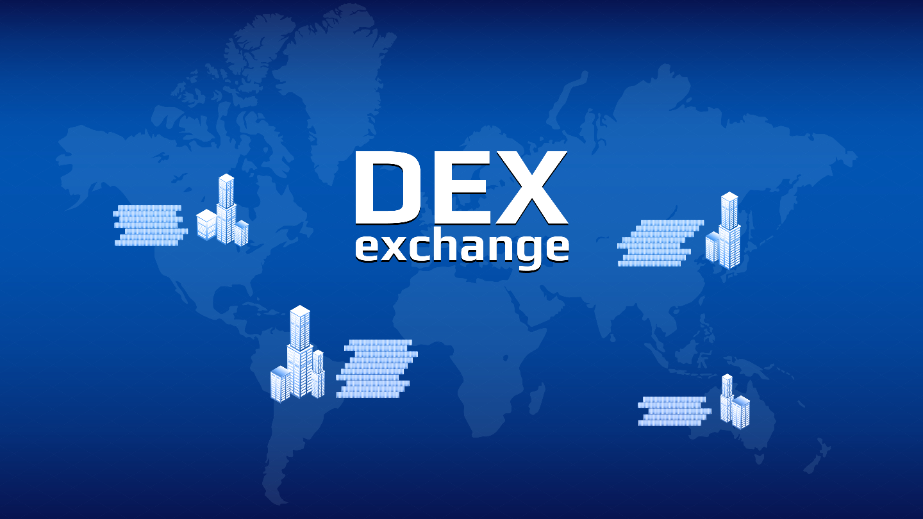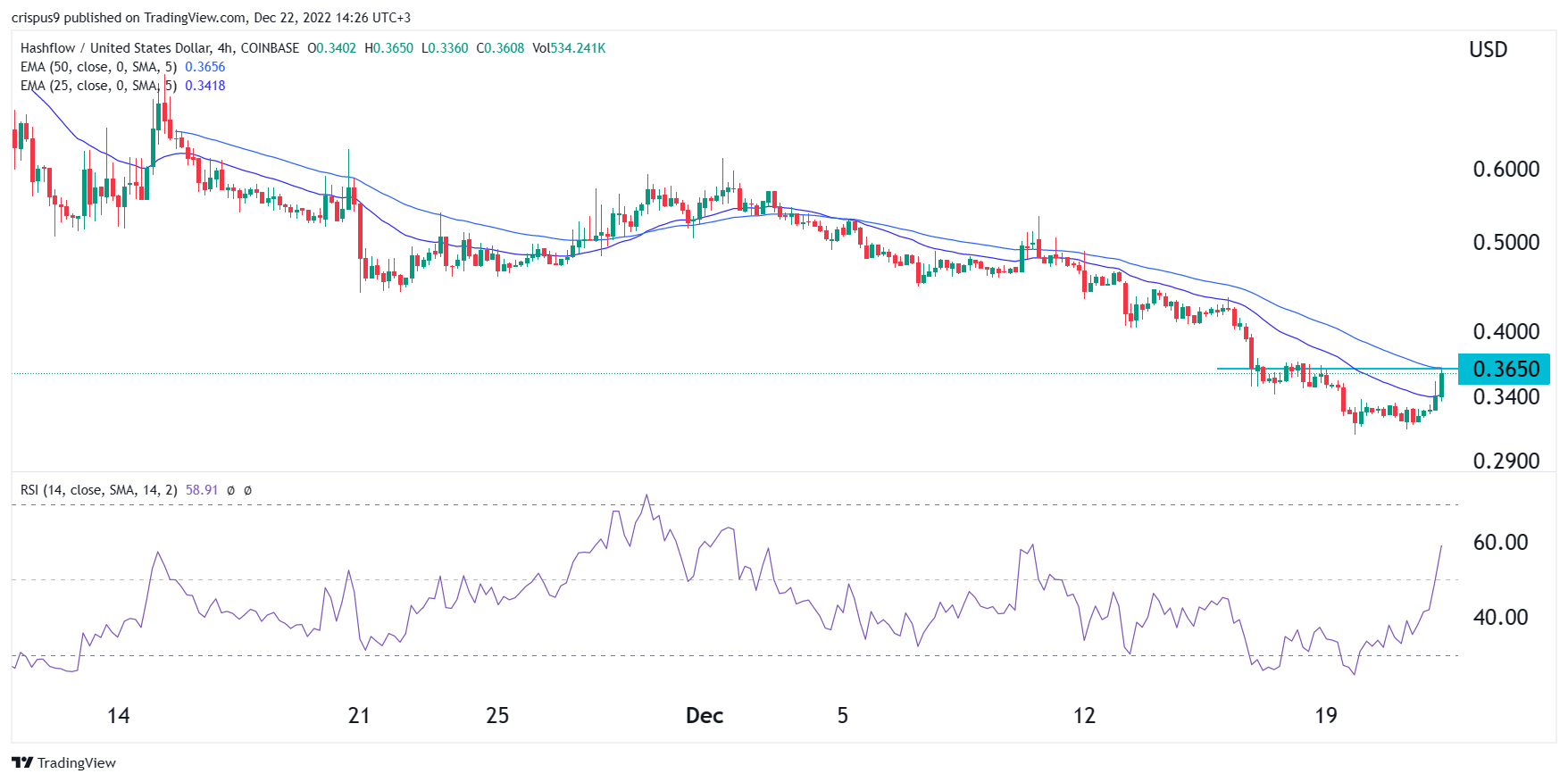
-
HFT price has staged a strong comeback in the past few days.
-
Oscillators show that Hashflow has gotten overbought.
HFT price made a slow comeback after plunging to a record low. Hashflow’s token rose to a high of $0.3650, which was the highest level since December 18 of this year. It has jumped by more than 18% from the lowest level this year, giving it a market cap of over $61.7 million.
What is Hashflow?
The biggest crypto news in 2022 was the collapse of centralized companies like FTX, Celsius Network, and Voyager Digital. These collapses highlighted the challenges with centralized finance in the blockchain industry.
As a result, there has been an ongoing transition to decentralized finance (DeFi) projects. One of the biggest winners in the DeFi industry was Hashflow.
For starters, Hashflow is a decentralized exchange (DEX) for bridgeless cross-chain swaps. It makes it possible for people to buy and sell cryptocurrency tokens across multiple blockchains like Ethereum, Avalanche, and Cosmos.
The benefit of using Hashflow is that it has no slippage and zero fees, making it much cheaper than popular DEXs like GMX and Uniswap. Another benefit of Hashflow is that it uses a pool-based architecture to give market makers the ability to use pools as an inventory of assets to start quoting on the network.
Hashflow bridges the gap between centralized exchanges and decentralized exchanges. It does that by bringing the sophistication of the traditional market to the decentralized level. In less than two years, it has handled transactions worth over $11 billion. It has handled transactions worth over $22 million in the past 24 hours and $116 million in the past 7 days.
Data compiled by DeFi Llama shows that the total value locked (TVL) in Hashflow has increased to over $25 million. Most of these funds are in its Ethereum system. It is followed by Avalanche, BNB Chain, and Polygon.
HFT price prediction

The 4H chart shows that the Hashflow token price has made a strong comeback in the past few days. It has managed to move from this month’s low of $0.3115 to a high of $0.3650. It has also moved slightly above the 25-day moving average while the Relative Strength Index (RSI) has moved to the extremely overbought level.
Therefore, with most oscillators overbought, there is a likelihood that it will pull back slightly in the coming days. If this happens, it will likely retest the support at $0.3340.

